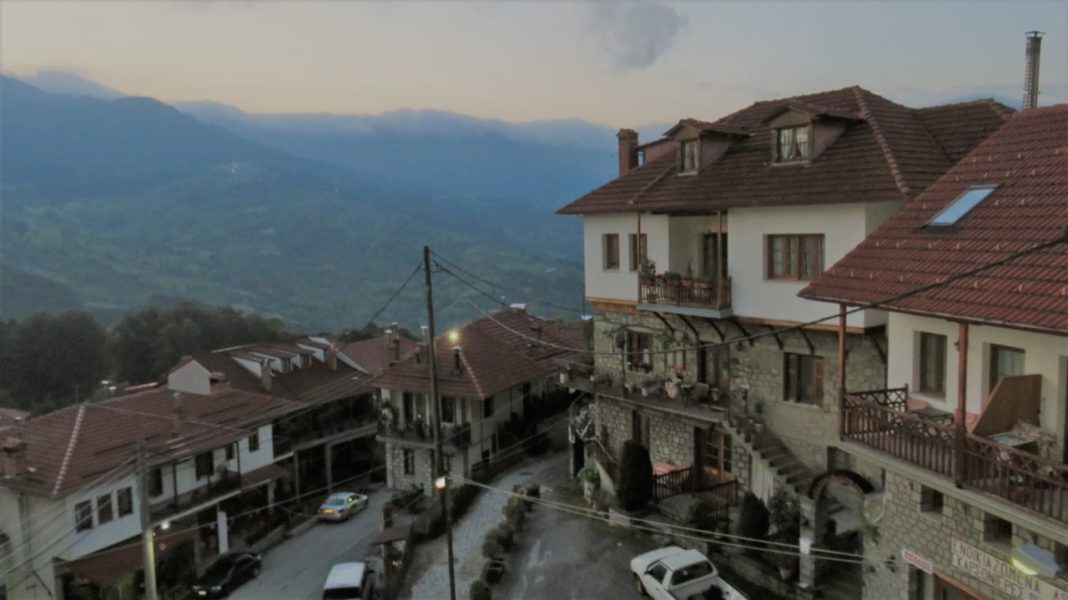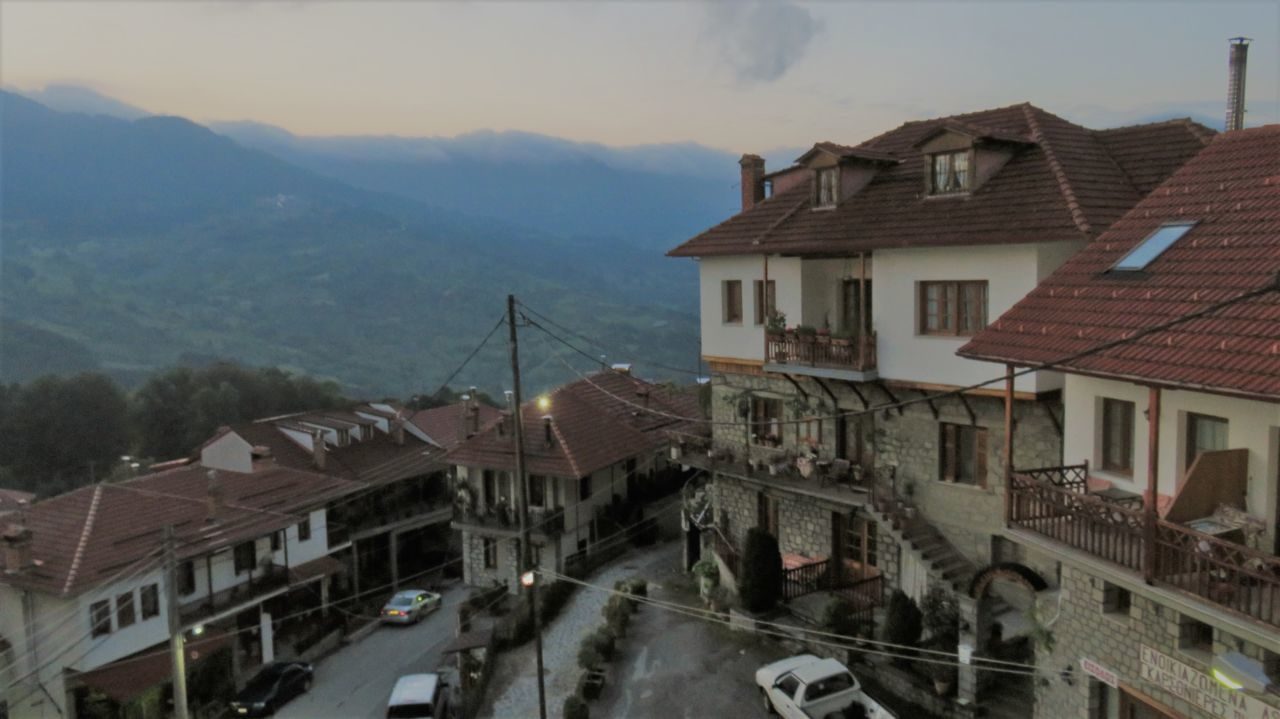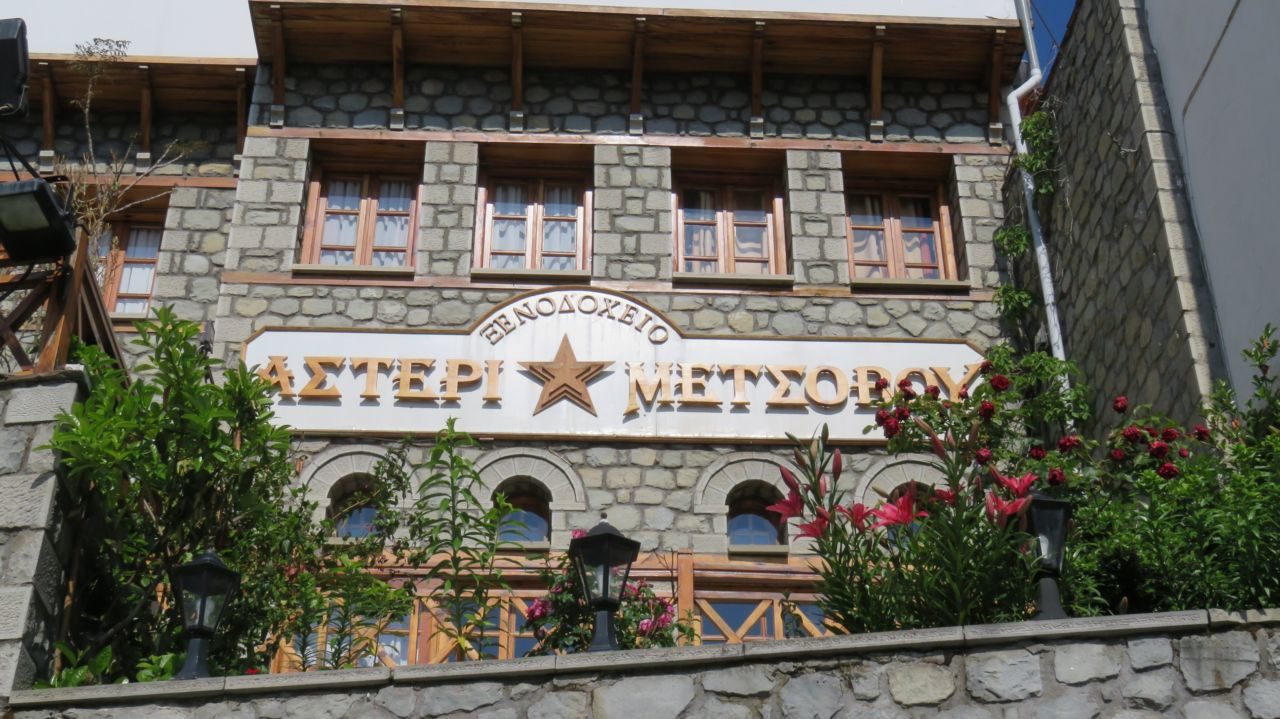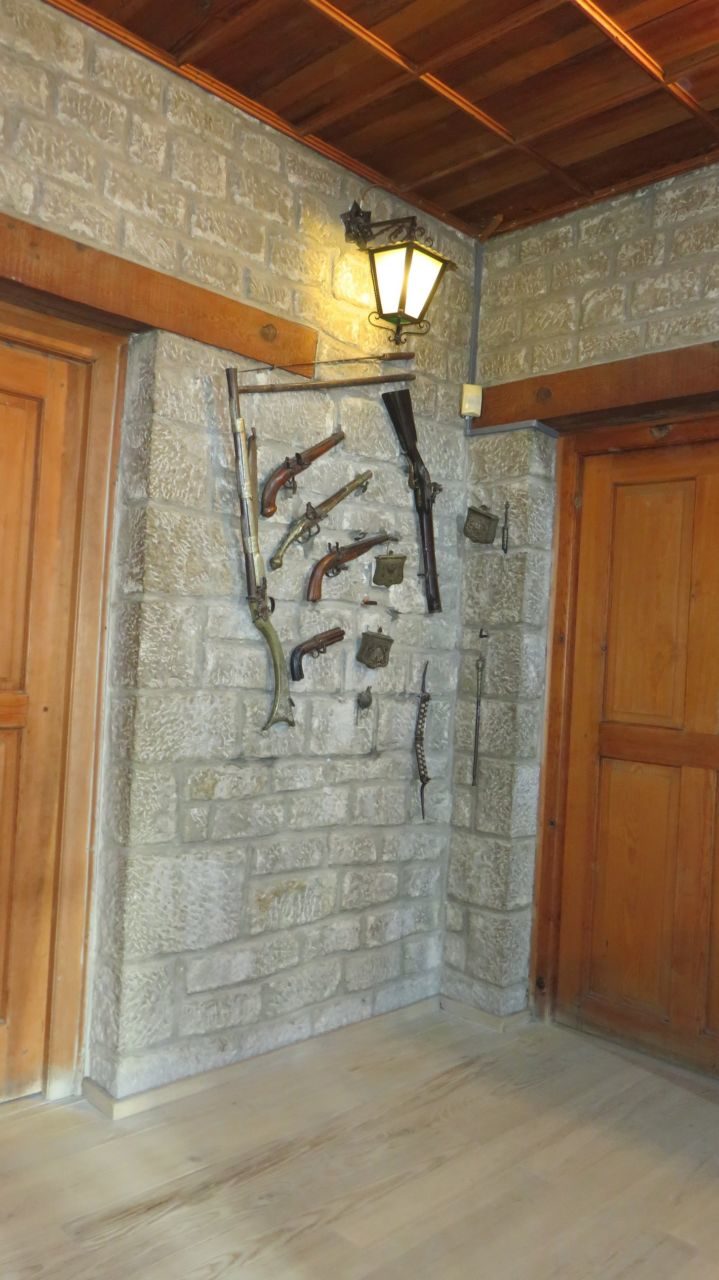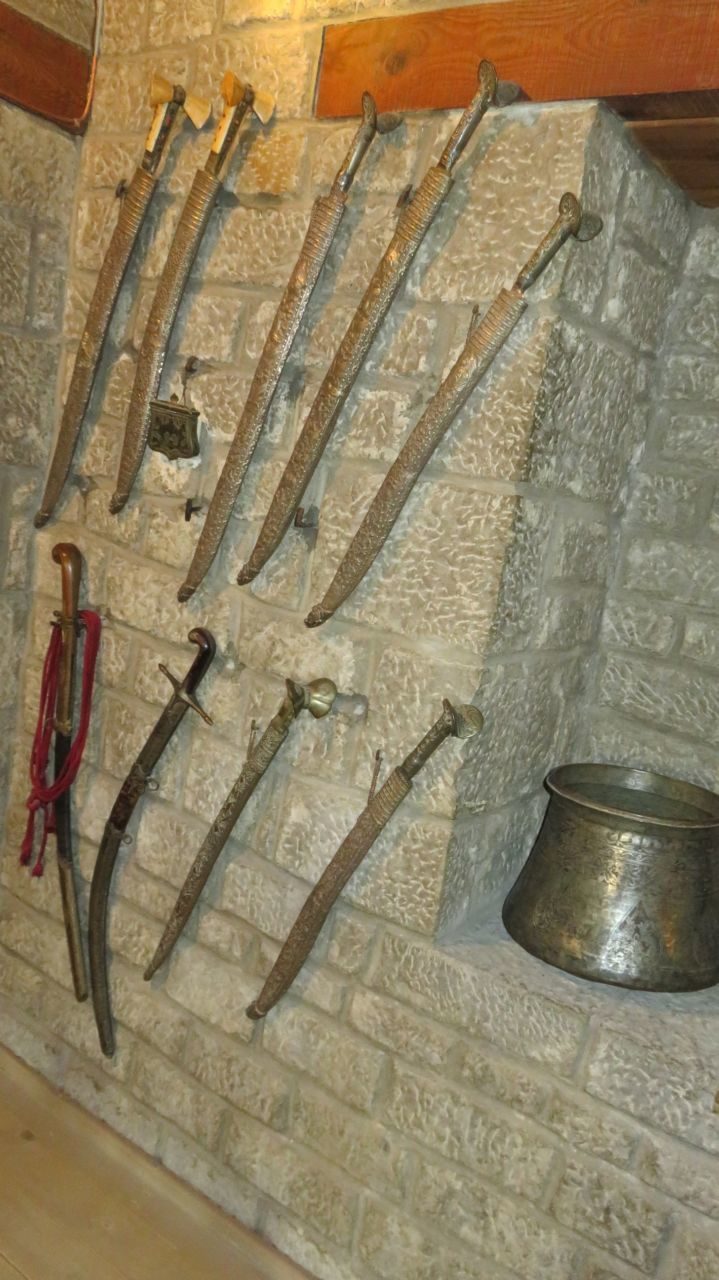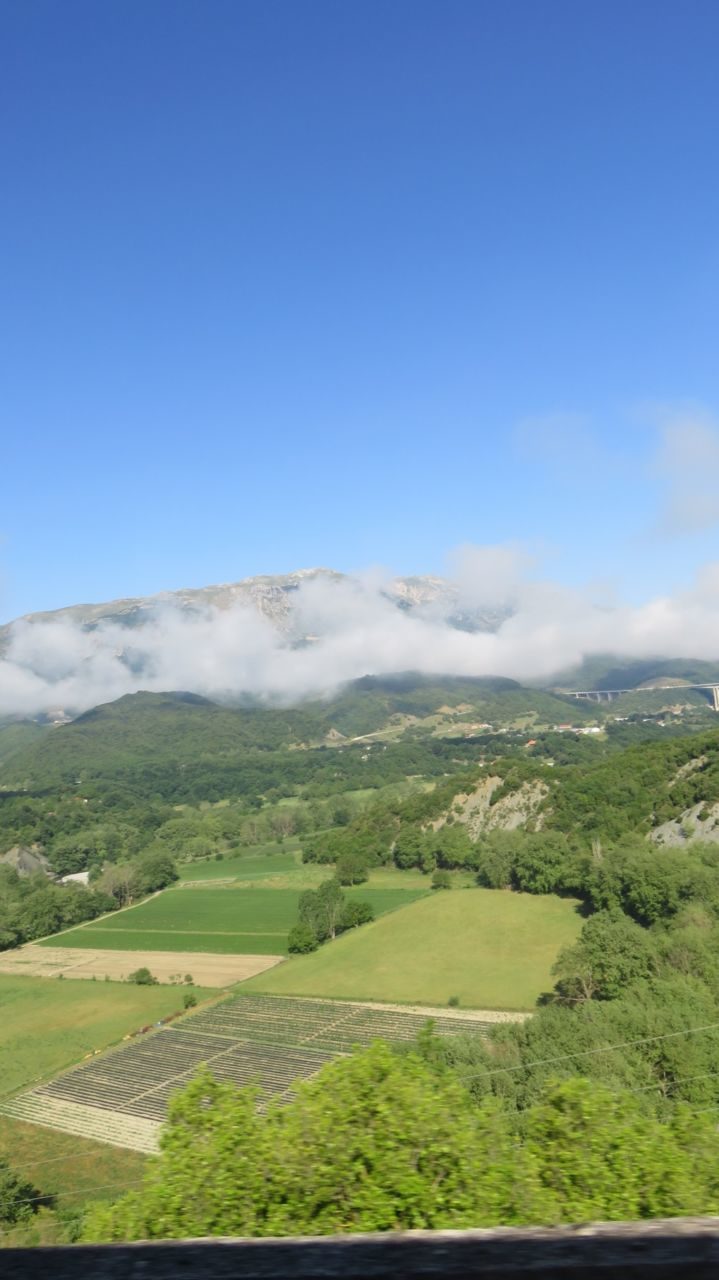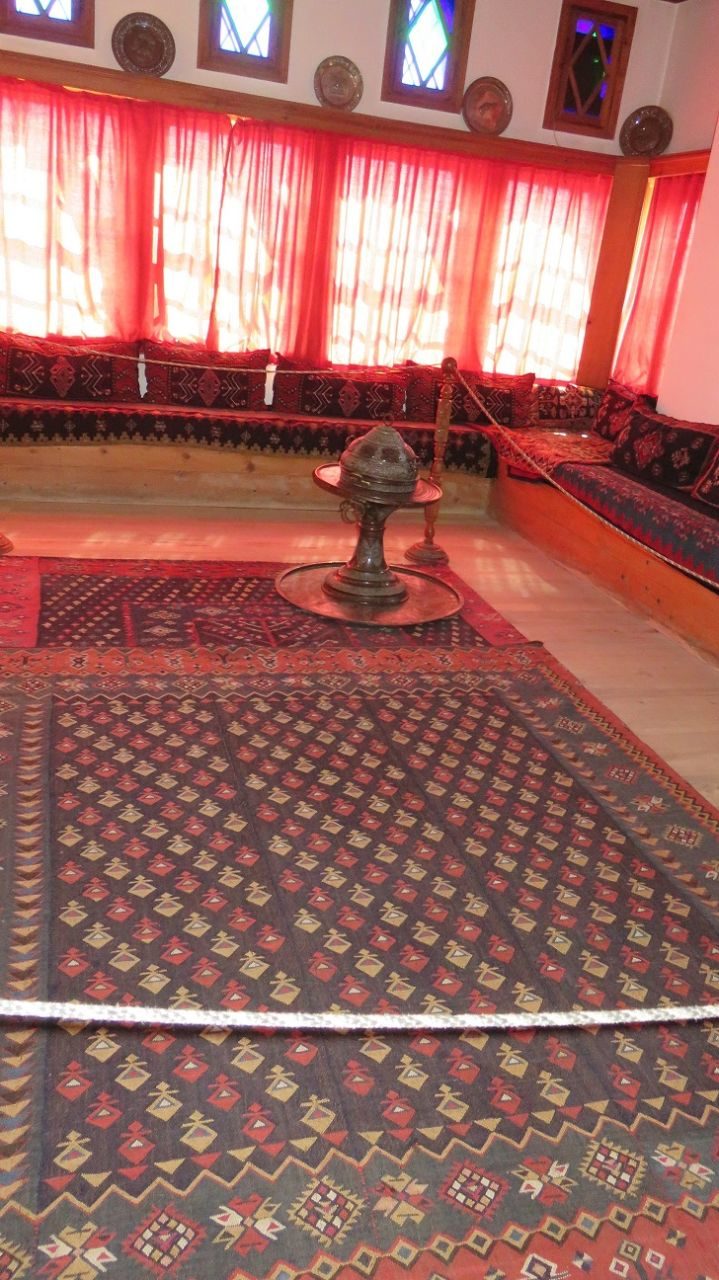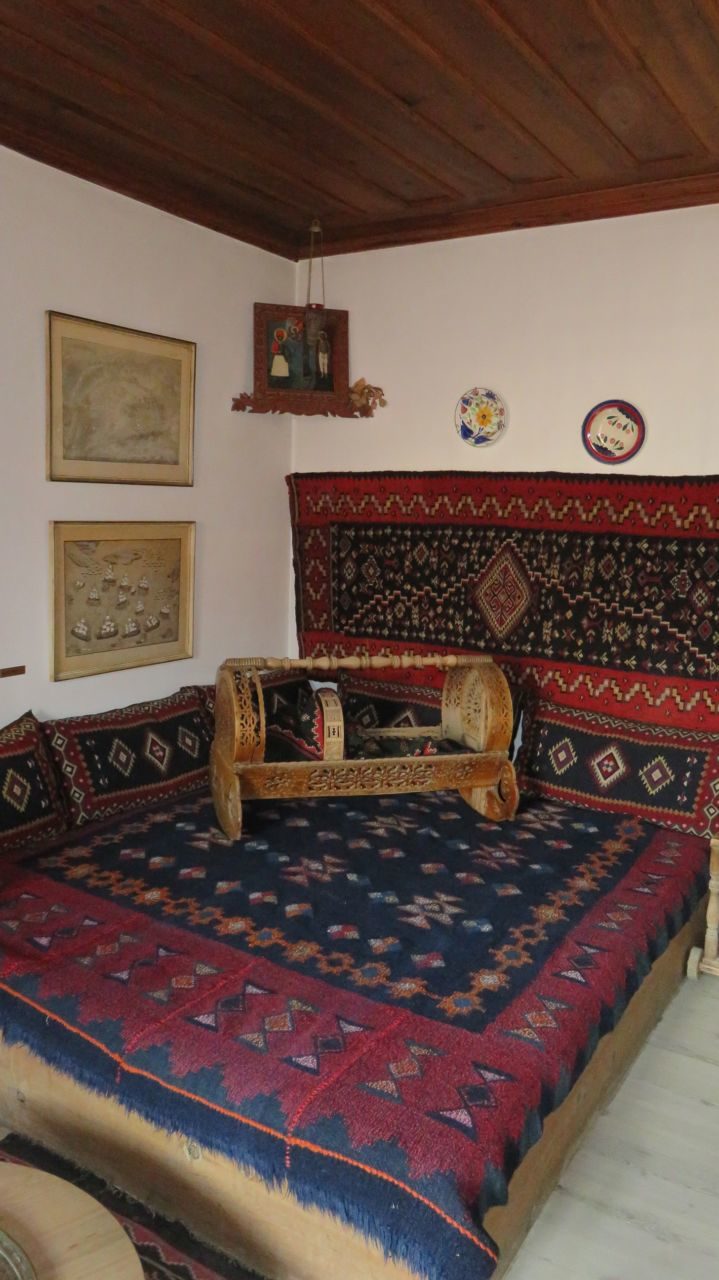By Catherine Tsounis
“We cannot get hotels in Ioannina for our entire group,” said Kostoula Kapogiannis, group leader of the Kapogiannis Tours three-day excursion to Lefkada and Epirus. “We will be spending two nights in Metsovo June 3rd and 4th. Traveling through inland Epirus in late spring is totally different from the islands and the Peloponnese. Greenery, rich farmlands with the Pindos mountains in the background was breathtaking. The abundant forests, misty mountain passes, rivers and gorges unfolded an unforgettable experience.
Metsovo has stone houses with grey slate roofs. My room had a balcony with an incredible view of the Pindos mountains. The city was immaculate, devoid of all graffiti. It looked like Swiss alps skiing center. Epirotes are known for their pites, strudel leave pies with different fillings.
“Epirus means continent in Greek. Ancient Epirus was once a huge country that stretched from modern day Albania (an area the Greeks still call northern Epirus and one in which Greek is still spoken by large communities) bordered by the Ionian Sea to the west, the islands of Lefkada to the south and Corfu to the north…Epirus remained a part of the Ottoman empire until it became part of Greece in 1913. “We are all Epirotes,” explained Billy Litos, who is from Agia Saranta in Northern Epirus, Albania. “We spoke Greek in our homes and Albanian in the work place. Our syllogos (society) is ‘Anagenesis’ in Astoria.” The Society of Epirotes “Anagenesis” and the Ladies’ Auxiliary “Souliotisses,” is located at the Epirotan Cultural Center at 2514 Broadway (between. 29th St. & Crescent St.) in Astoria, New York.
We stayed at Asteri Metsovo. I had a balcony, single room overlooking the Pindos mountains. Early dawn from the balcony gave me an incredible impression. Ouranea and Aristotelis are the owners. They were working long hours, with humility and a smile.
Metsovo is 3,300 feet above sea level. It is below the 6,069 foot Katara pass, that is the highest in Greece. Villages are fading away. Metsovo is designated a traditional settlement by the Greek National Tourism Organization. It is a prosperous, self-sufficient community with a growing population. The citizens are descendants of nomadic Vlach shepherds. They were Greeks trained by the Romans to guard the Egnatia Highway connecting Constantinople and the Adriatic Sea. Metsovo became an important financial center. The city joined Greece in 1912. Important Greek families, such as Averoff and Tositsas became benefactors of Greece.1
We ate both evenings at “To Koutouki Tour Nikola”. Koutouki means “little box”. The best steak I had in Greece was here. Immaculate, with table cloths, the service was excellent, free of preservatives. In a rainstorm, they delivered meals to our hotel. Their work ethic and hospitality is legendary. On our last day, we visited Agia Paraskevi Metropolis and Tositsa’s Museum.
The Tositsa family lived in Metsovo in a traditional way. The mansion was built in 1661 and renovated in 1954. No plumbing or bathrooms. Fine carved woodwork, bright rugs and linens, and hand carved Vlach furniture decorated the interior. I noticed one item: GUNS. They were everywhere on the walls. Tositsa was a tough, no- nonsense family, with courage to protect their own. One can help but admire persons with toughness in an age of political correctness. Cretan icons from the 1650’s were hanging, from the Cretan School. Guns and icons were part of life. We were the first group present at 9 a.m. Our guide was Thothoros an educator, who gave life to his narration.
Who were the Great benefactors? Epirus for the Greeks represented the “epitome” of a hardy, often inhospitable land that was unsuited for cultivation. Hard labor was needed to yield a livelihood. It was “eýandros”, the land of hardy, good men.2 Epirus produced a significant percentage of immigrants who amassed large fortunes. They gifted their wealth to the Greek nation either to fund the armed struggle against the Ottomans or to provide valuable structure for the creation of a new State. Epirotan Benefactors rebuilt Greece.
These Benefactors included the following persons: Evangelos Zappas rebuilt the Panathenean Stadium and the Zappeion mansion; Asikis, who also served as foreign minister and prime minister of Romania, built a women’s college on Panepistimiou, the “Arsenio”; Tositsas built the Athens Polytechnic, scene of the famous uprising and the Eye Hospital; George Stavros founded and directed the National Bank of Greece; the Azoimides brothers built the Athens Numismatic Museum; Evangels Averoff, donated moneys towards the refurbishment of the Panathenaic Stadium, built the Metropolitan Cathedral of Athens, the military academy, a jail, horticultural schools in Larissa, the Athens Odeon and most famously, the warship Georgios Averoff, which saw service during the First World War, created schools, hospitals and churches for the Greek community of Alexandria, Egypt and Baron Sines built the Athens Astronomical Observatory. Their financial funding was astronomical. Most of these institutions are in operation today, because of the interest accumulated from the original cash deposit.3
During much of the eighteenth and first half of the nineteenth centuries, Hellenism served in the Balkans as an ecumenical cultural ideal, very much like the role it played in the eastern Mediterranean of the Hellenistic period and of late antiquity. Although not supported by military might as was the case in Alexander’s time, it attained enormous prestige. Indeed, Greek culture along with Orthodoxy and the Ottoman administration served as the three unifying forces in the Balkans. Hellenism expanded throughout the region because Greeks had dominated the four areas— religion, economy, administration, and intellectual life—that constituted the shared substratum of Balkan life (Tsourkas 1967: 212). Ethnic Greeks occupied positions of enormous prestige and influence in the Ottoman administration and served for decades as governors of Walachia and Moldavia. Greek had become the language of commerce and Hellenism the secular culture of the Balkans (Camariano-Cioran 1974: 15, 311). The economic and political power of the Greeks enabled them to have more contacts with Westerners than their neighbors, which explains in part their earlier attempts at modernization.4
“The ravages of World War II and the civil war, along with poor communications, non-sustainability of traditional livelihoods, and punitive government neglect, spurred massive emigration to North America, Germany and Australia. By the 1970’s, many Epirot villages were in an advanced state of physical and social decline. Numerous houses were left to decay while others sheltered a dwindled population of the economically in active elderly.”5
“But matters have slowly changed. The government has acted to integrate the region into the national economy, with frequent flights to Ioannina and good roads, the Via Egnatia expressway and its tunnels through the Pindos. Emigration has slowed down. Village life with traditional architecture and methods now viewed less as stumbling blocks to economic prosperity and more as cultural heritage to be preserved.6
This trip was a success because of Mrs. Kostula Kapogiannis. Her narration of Epirus was historically accurate. She tried to help me negotiate a reasonable price for an evening delivery of dinner at Asteri Metsovo. When I needed assistance with my suitcase, she said “don’t worry! I will take care of it. Don’t spend money.” She personally took the suitcase from my room herself. Enjoy Greece with local residents who are gracious and hospitable.
References:
- Fodor’ Travel, “Greece” (Random House: New York, 2015). pp. 347-349.
- http://en.wikipedia.org/wiki/Epirus).
- (http://diatribe-column.blogspot.com/2009/01/benefactors.html
- https://en.wikiquote.org/wiki/Greeks
- Insight Guides, “Greece” (APA publications, February 2017). p. 195.
- Insight Guides, p. 195.
Links:
https://www.facebook.com/Kapogiannistravel – Kapogiannis Tours
http://www.asterimetsovo.com/ – Asteri Metsovo hotel





